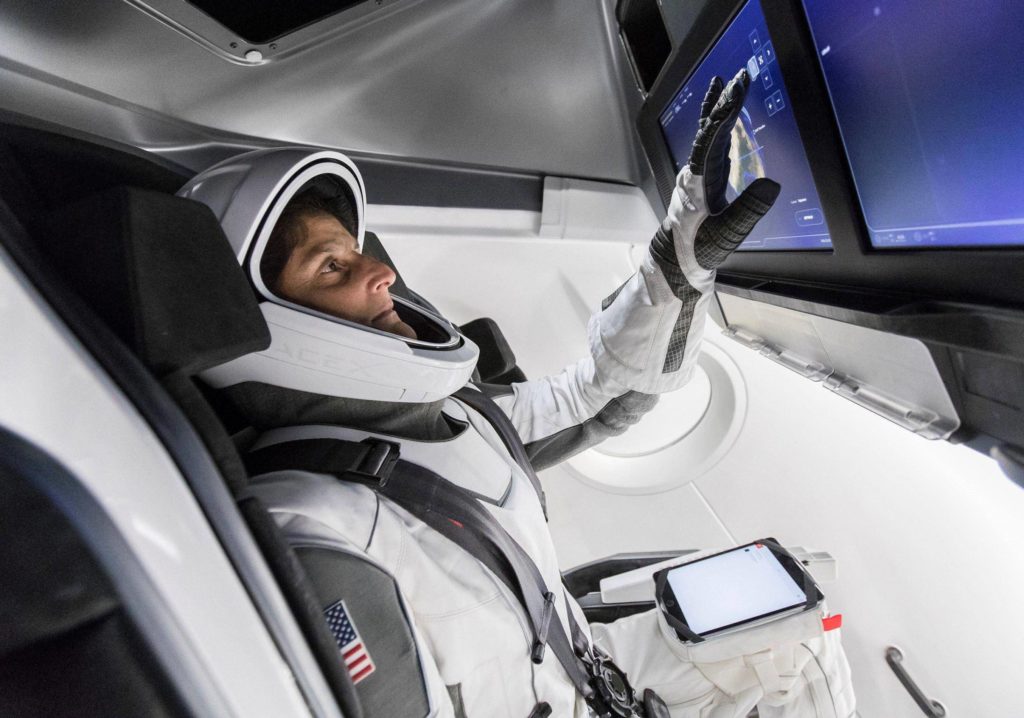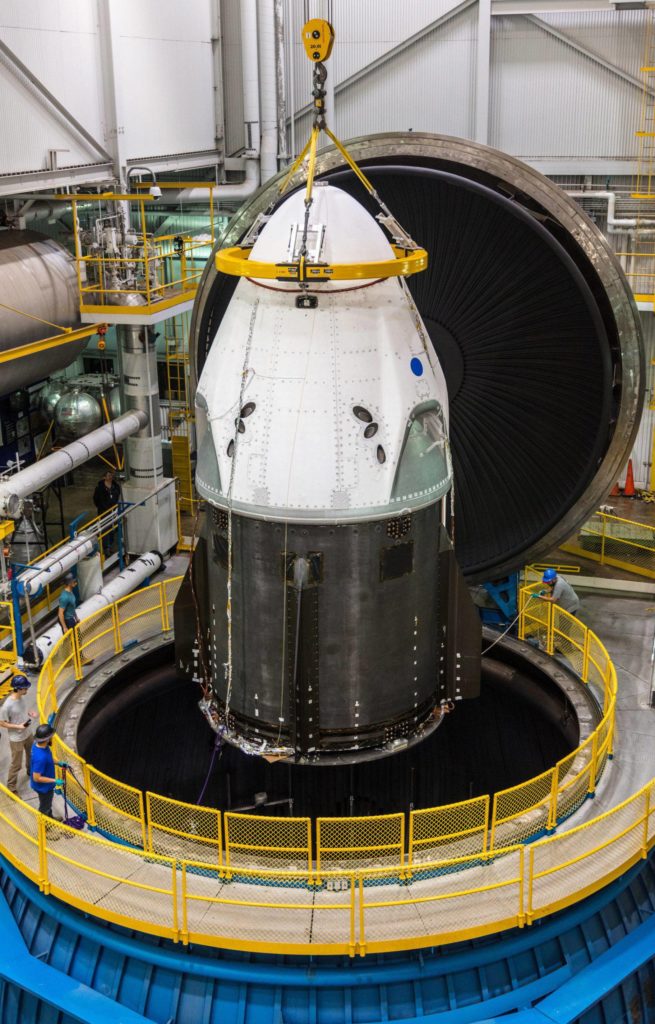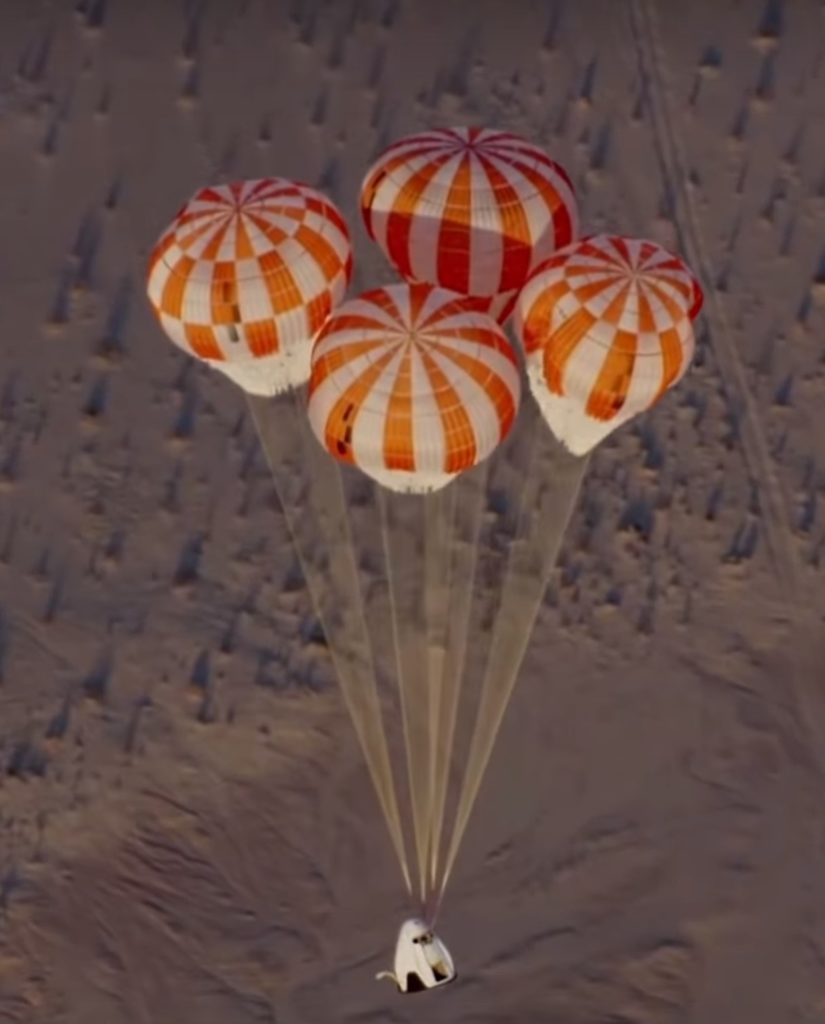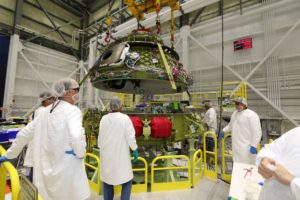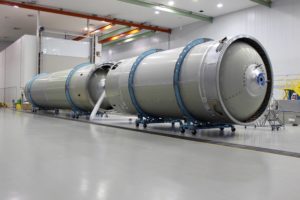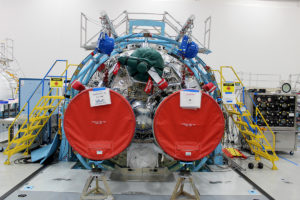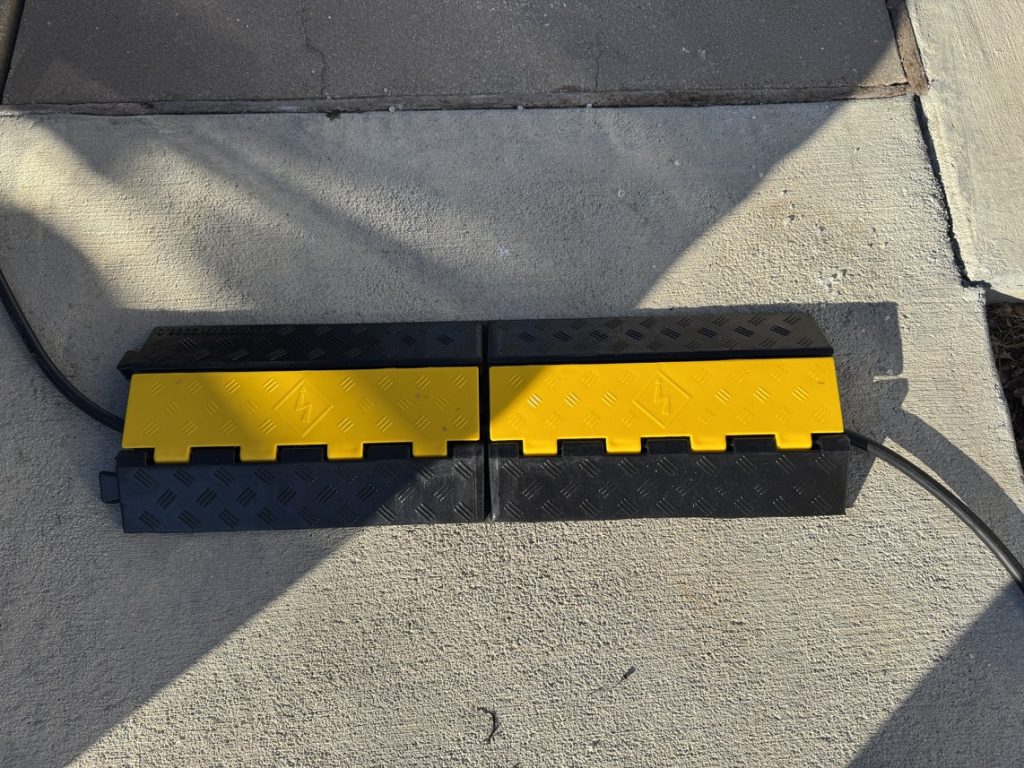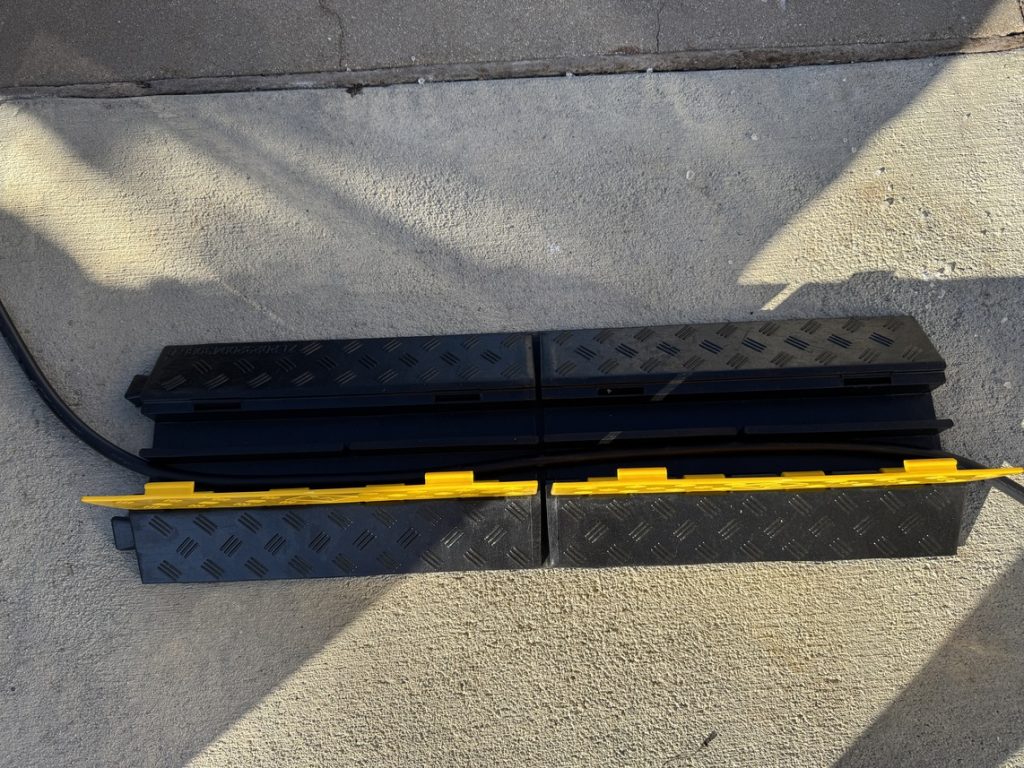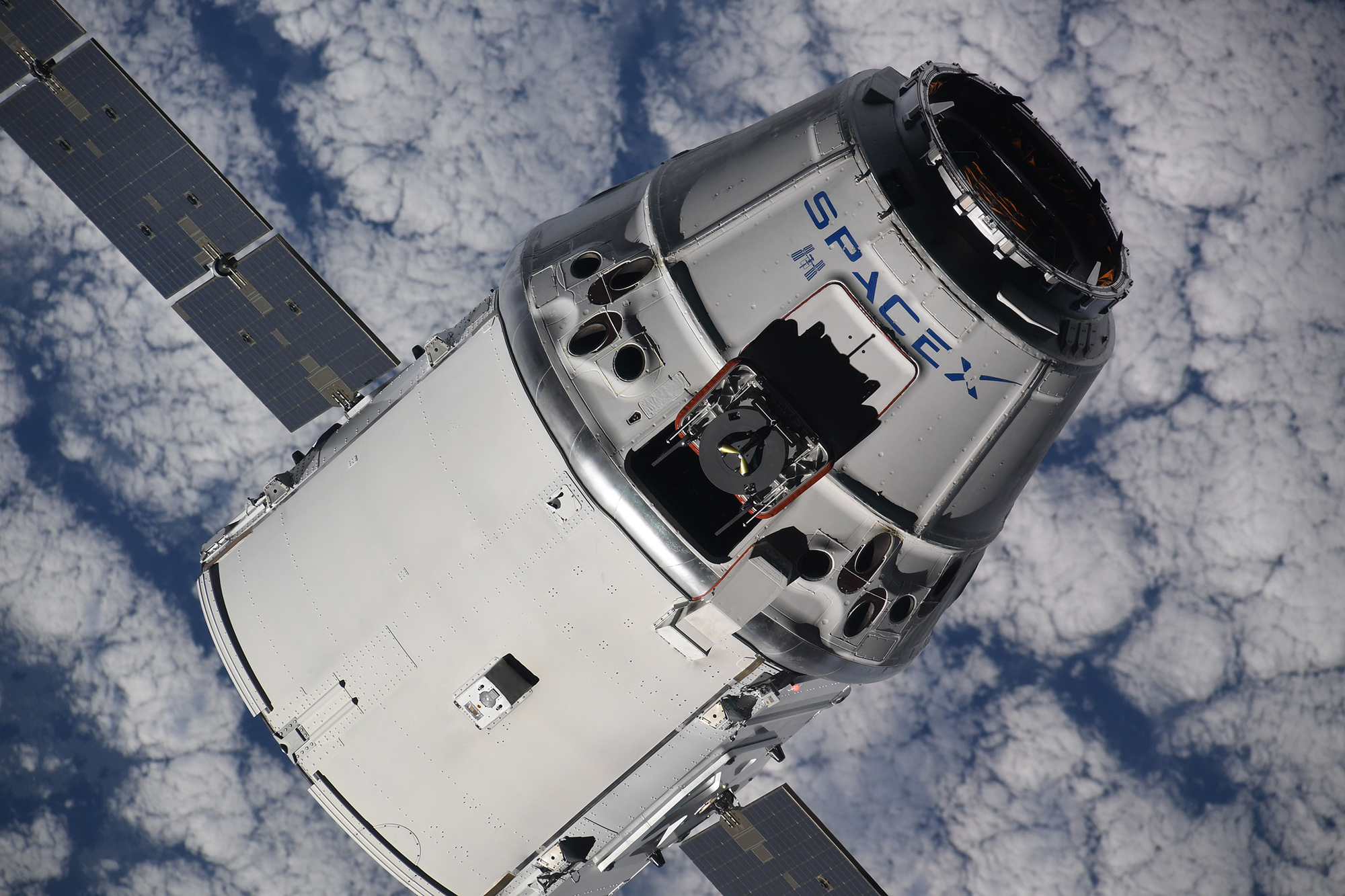
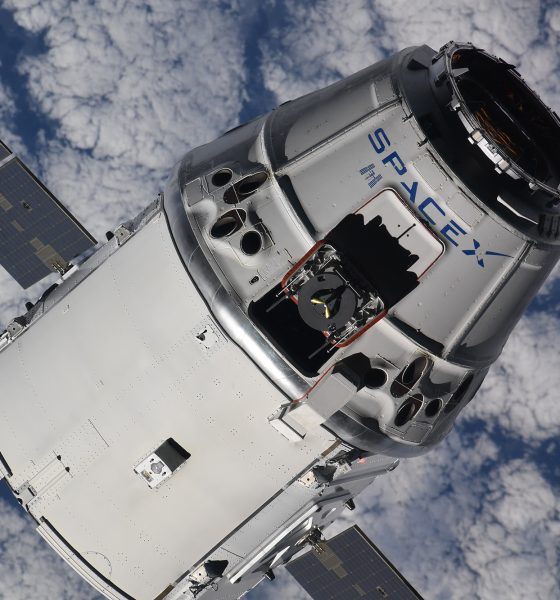
News
SpaceX’s Crew Dragon preps for debut as race to return astronauts to US craft nears final stages
After spending two weeks testing in a specialized NASA-run facility, SpaceX’s first flightworthy Crew Dragon spacecraft was shipped from Ohio to Florida, where it will now spend a number of months preparing for its first (uncrewed) launch into Earth orbit.
Known as Demonstration Mission 1 (DM-1), this critical milestone must be passed before the capsule will be certified to carry NASA astronauts to the International Space Station (ISS) sometime in 2019. While DM-1 will not sport a human crew, the spacecraft is nevertheless expected to demonstrate all life and mission-critical components, ranging from Crew Dragon’s complex array of avionics and ground/orbital communications equipment to craft’s ability to safely return passengers to Earth with a soft ocean landing.
SpaceX’s Crew Dragon spacecraft has been in the serious hardware development phase for approximately five years, although the concept itself dates back about as early as its Cargo Dragon predecessor – 2005 to 2006, publicly. Over the course of roughly two weeks of testing at NASA’s Plum Brook Station, Crew Dragon was likely subjected to a suite of environmental conditions the spacecraft will need to routinely survive to make it through initial launch and successfully operate under the rigors of microgravity and thermal vacuum conditions.
Crew Dragon arrived in Florida this week ahead of its first flight after completing thermal vacuum and acoustic testing at @NASA’s Plum Brook Station in Ohio. https://t.co/xXJE8TjcTr pic.twitter.com/lr0P95zzIK
— SpaceX (@SpaceX) July 12, 2018
Given the DM-1 capsule and trunk’s fairly quick jaunt at the huge Plum Brook vacuum chamber and equally quick arrival in Florida, those test results were likely quite favorable. Still, a major amount of work lies ahead before the first full Crew Dragon is ready for its launch atop Falcon 9. Most significantly, the craft’s trunk did not follow its fellow capsule to Florida, but rather returned to SpaceX’s Hawthorne, CA factory to be outfitted with critical flight hardware, particularly radiators and solar arrays. Once that outfit is complete, the module will also be shipped to Florida before being integrated with the DM-1 Crew Dragon capsule.
Of note, the DM-1 capsule has been constructed from the start to support a plan to use the vehicle in an in-flight abort test meant to ensure that the craft can wrest its passengers from harm’s way even at the most intense point of launch, where aerodynamic pressures are at their peak. In order to properly support both the DM-1 orbital mission and the in-flight abort test to follow, the capsule has been outfitted with a fair amount (hundreds of pounds) of hardware that will be unique to the pathfinder spacecraft. This understandably adds its own complexity to the already intense program’s first orbital mission, although it will hopefully not translate into additional delays.
- NASA Astronaut Suni Williams, fully suited in SpaceX’s spacesuit, interfaces with the display inside a mock-up of the Crew Dragon spacecraft in Hawthorne, California, during a testing exercise on April 3. (SpaceX)
- SpaceX’s Demo Mission-1 Crew Dragon seen preparing for vacuum tests at a NASA-run facility, June 2018. (SpaceX)
- Crew Dragon parachute tests are likely to continue into the summer to ensure NASA certification in time for DM-1. (SpaceX)
SpaceX competitor’s crewed spacecraft and rocket take shape
It’s worth noting that SpaceX is effectively operating at a distinct – albeit partially self-wrought – financial handicap when compared with Boeing’s Starliner spacecraft program, one of two vehicles funded by NASA to accomplish the same task of safely and reliably transporting astronauts to and from the ISS.
“NASA awarded firm-fixed-price contracts in 2014 to Boeing and Space Exploration Technologies Corporation (SpaceX) [of] up to $4.2 billion [for Boeing] and $2.6 billion [for SpaceX] for the development of crew transportation systems.” (GAO-18-476)
- Boeing’s DM-2 Starliner undergoes integration in Florida earlier this year. (Boeing)
- The ULA Atlas V rocket that will launch Boeing’s DM-1 Starliner spacecraft captured at ULA’s Decatur, AL factory, October 2017. (ULA)
- The United Launch Alliance (ULA) dual engine Centaur upper stage of the Atlas V rocket in the final stages of production and checkout, May 2018. (ULA)
In other words, Boeing requested and received a full 60% more than SpaceX to – quite literally – accomplish an identical task. Alongside the storied and brutally expensive history of crewed American spaceflight, both contracts are an absolute steal for two modernized, crew-capable spacecraft, but a 60% premium is a 60% premium. Foreseeable but slight cost overruns caused, among other things, by additional contractual requirements from NASA have followed a similar trend, roughly proportional to each company’s slice of the original $6.8b Commercial Crew contract.
“As of April 2018, NASA requirement changes had increased the value of contract line item 001 for Boeing by approximately $191 million and for SpaceX by approximately $91 million.” (GAO-18-476)
Still, Boeing’s progress towards its own DM-1 and DM-2 demo flights and a pad-abort test are impressive, although it very likely is more of a demonstration of a different approach to public communications than of any actual step up on SpaceX. In the last few weeks, Boeing has released a number of photos showing off the progress made building its own Starliner capsules and service modules (trunks), three of which are currently in varied states of assembly and integration in the company’s Florida-based facility. Additionally, United Launch Alliance CEO Tory Bruno has shared off-and-on updates and photos of the launch contractor’s own progress assembling the rockets that will launch Boeing’s spacecraft.
The two engine Centaur is getting ready and excited for #StarLiner. pic.twitter.com/WIf3H8k9yq
— Tory Bruno (@torybruno) July 2, 2018
Regardless, a huge amount of work lies ahead before both Boeing and SpaceX’s crewed spacecraft are able to conduct their first uncrewed and crewed launches into orbit. Now very outdated, NASA has stated several times recently that the presently available targets of NET August 31 will likely be updated later this month, pushing DM-1 debuts into NET Q4 2018 and the first commercial crewed demo missions to 2019.
Stay tuned, as the Block 5 Falcon 9 tasked with launching SpaceX’s own DM-1 Crew Dragon will likely be the next of a recent flood of finished rockets to leave the company’s Hawthorne factory, where it will head to McGregor, Texas to complete acceptance wet dress rehearsals and static fire tests before shipping to SpaceX’s Pad 39A in Florida.
Follow us for live updates, peeks behind the scenes, and photos from Teslarati’s East and West Coast photographers.
Teslarati – Instagram – Twitter
Tom Cross – Twitter
Pauline Acalin – Twitter
Eric Ralph – Twitter

News
I figured out how to charge my Tesla at my rented townhouse – Here’s how
I hope that this article is able to help the prospective EV buyer or the current Tesla owner who is living in a rental and does not have a straightforward solution to home charging. My situation will be presented in this article, and I will tell you why I went with the solution I went with, and alternatives, because there is more than one way to do this.
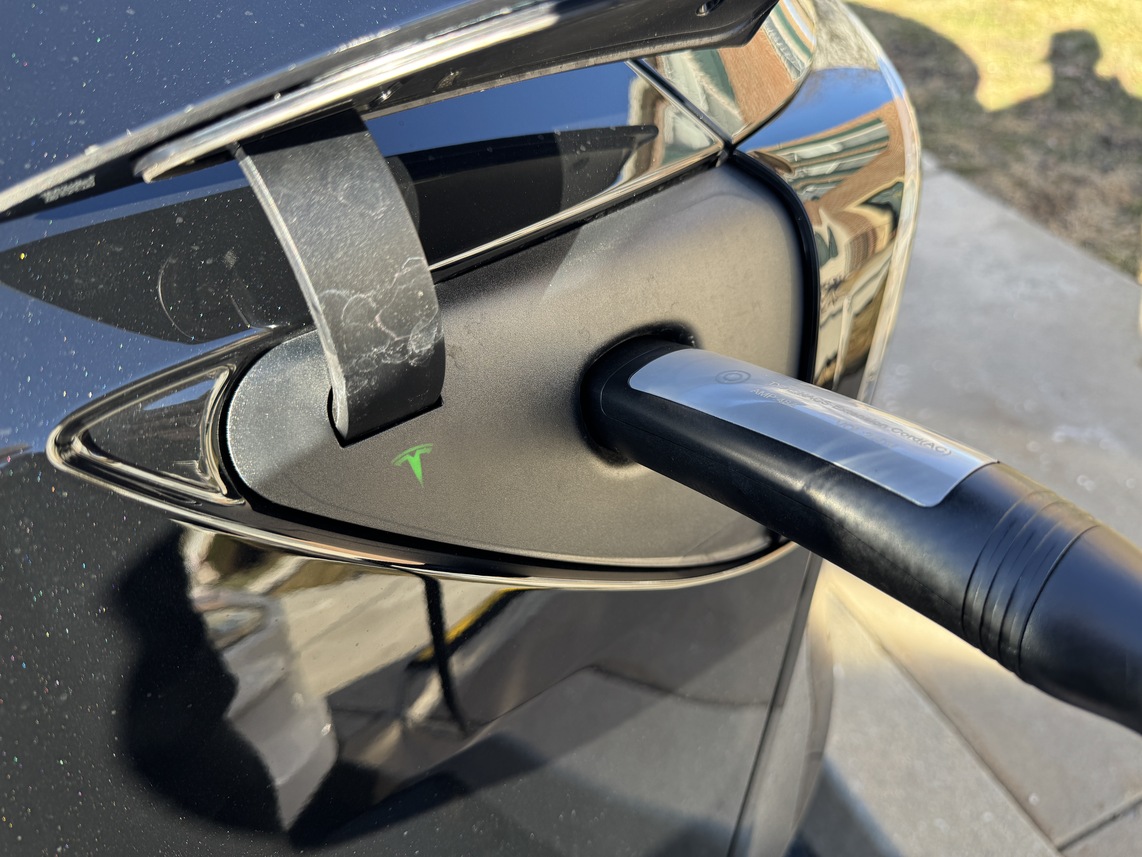
When I bought my Tesla Model Y Premium All-Wheel-Drive last year, I knew I would have to try to figure out a way not become totally reliant on Superchargers. After about six months of ownership, it came time to resolve that problem once and for good, and being a tenant in a rented townhouse community definitely added to my challenge.
Before I even bought my Tesla, I emailed my leasing office to see if the community had any plans to bring EV charging to the neighborhood. I had made myself available to them as I am familiar with a lot of the solutions out there and how much of an advantage this could be for the community, and attracting new tenants. After months of trying, I bought my Tesla in August anyway, and figured I’d be able to find an answer — whether positive or negative — and go from there.
I hope that this article is able to help the prospective EV buyer or the current Tesla owner who is living in a rental and does not have a straightforward solution to home charging. My situation will be presented in this article, and I will tell you why I went with the solution I went with, and alternatives, because there is more than one way to do this.
My Challenge with Home Charging
In a rental community, apartment complex, or even townhouse row, parking spots are a little complicated. I have assigned parking at my house, and unfortunately, my parking spot is not right in front of my front door. Instead, it is staggered, so my car is parked in front of my neighbor’s front door.
Initially, I had spoken to my neighbor whose spot is right in front of my front door and had gotten permission to park in their spot during the day while it is vacant. However, I was not going to be able to upgrade my outlet from a 110v-120v to the typical and suggested 220v-240v alternative.
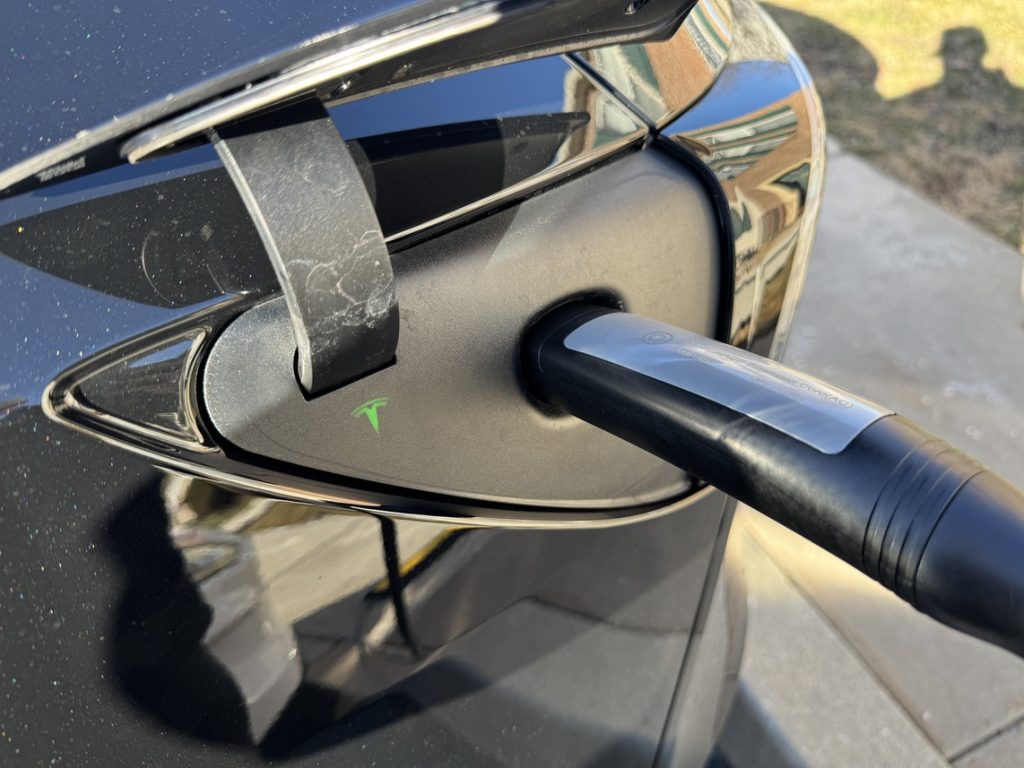
I knew that this would mean I would need to be in my permanent spot because charging sufficiently, especially in preparation for trips or errands, would require overnight charging.
The Tesla Mobile Connector is 20 feet long, which is sufficient for most applications. Mine, however, required about 30 feet, maybe even a little more, to charge.
My Options
I had a few options: Use the Mobile Connector and park in my neighbor’s spot and charge when I could, buy an 8 or 10-gauge extension cord that could handle moving power from the Mobile Connector to my car, or buy an NACS to NACS extension cord.
I didn’t really want to do the first option, considering I knew that spot would only be available when my neighbor was not there. It didn’t seem like a viable option, and I figured it would be better to figure out something from my personal, permanent parking spot anyway.
The 10-gauge extension cord option was what I first considered: it was less expensive than buying an NACS extension, it was more readily available, and it was the first thing my friends who are electricians recommended.
However, running this option would have put the Mobile Connector in the grass or on the ground, and I was not interested in doing that. Running the risk of having that $300 connector that came with the car in the grass and exposing it to dew, dogs, and various other things just did not seem like the best idea.
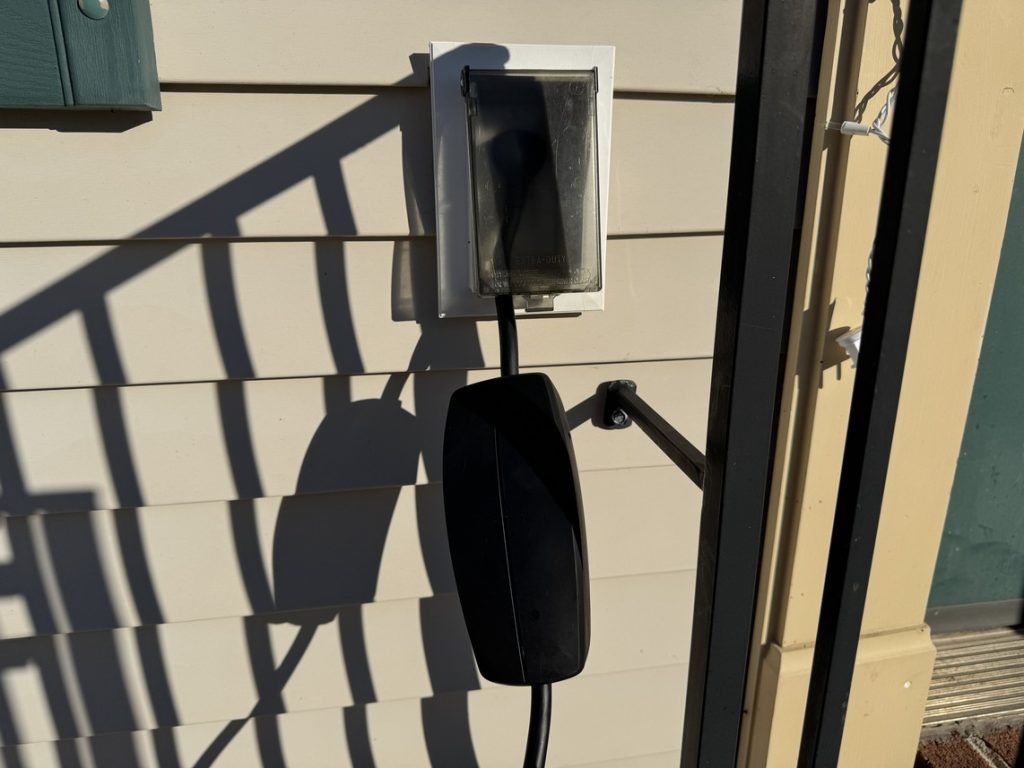
I looked around for some NACS to NACS connectors, and there are a lot of options. Given that this was something that was going to plug into a $50,000 car, I chose to spend the additional money on one that was not from Amazon, and I went with this one from A2Z, which was recommended by other owners, and their reputation seemed more than positive. I was leaning toward this option anyway because it would keep the Mobile Connector off the ground, and it gave me an additional 16 feet of length to work with.
This was the solution.
Putting It Into Action
It was a relatively simple process: Plug the Mobile Connector into my house, plug the NACS to NACS extension into the Mobile Connector, plug the NACS extension into the car. It all worked immediately, but there are some things you should know if you are also planning to do this.
The first is that you should be very aware that these cables are going to be a target of thieves. I don’t have too much of an issue with this in my area, but if you’re in a place where copper wiring is heavily sought after, be sure to keep these in a place where they won’t be stolen. I put mine away when they’re not charging, and at night, they’re visible from my Ring camera, so I’m not overly concerned. Definitely be aware of it, though.
Additionally, if you’re going to run it across the sidewalk like I am, you’re going to want to pick up some sort of cable cover from a local hardware store. I picked up this one from Amazon because it was a little more heavy-duty, and it was big enough to cover the thicker gauge of the NACS to NACS extension:
I’ve considered picking up a second one for the visible cable, but I am undecided.
So far, I’ve been able to add some range to my car three times using this strategy, and while it is very slow, it is definitely worth it. It’s better than it sitting there stagnant.
Speed of Charging
Tesla says the Mobile Connector will provide you with between 3 and 5 miles of range per hour when plugged into a typical wall outlet. That is about what I’ve gotten with it. From 30 percent to 80 percent, be aware that it will take well over 24 hours to charge your car.
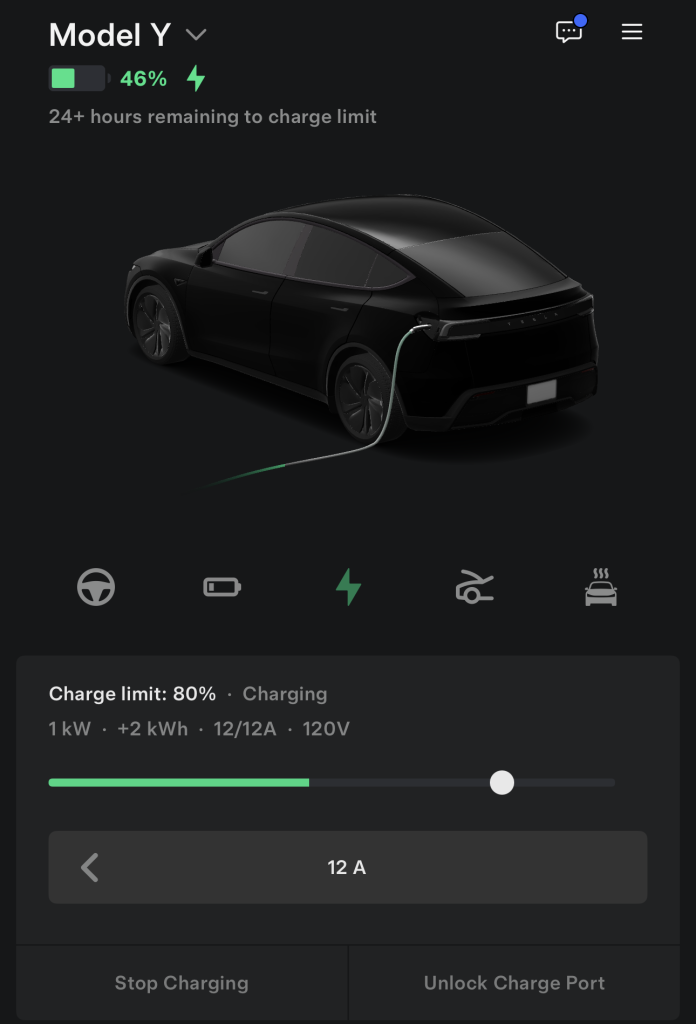
I plan to cover some additional details on this as time goes on, including any troubleshooting I might have to do, how much my electric bill goes up, and whether or not I run into any issues with my neighbors or my leasing office.
If you’re looking for some help on an at-home charging solution or have any questions about my setup, please email me at joey@teslarati.com.
🚨 I FINALLY figured out a way to charge my Tesla at home as a renter — Using Superchargers exclusively was inconvenient, tough on the battery, and expensive
Here’s how I did it: https://t.co/TZokpc6Fh3 pic.twitter.com/UtRYKLvB2Y
— TESLARATI (@Teslarati) March 2, 2026
Elon Musk
Starlink V2 to bring satellite-to-phone service to Deutsche Telekom in Europe
Starlink stated that the system is designed to deliver 5G speeds directly to compatible smartphones in remote areas.
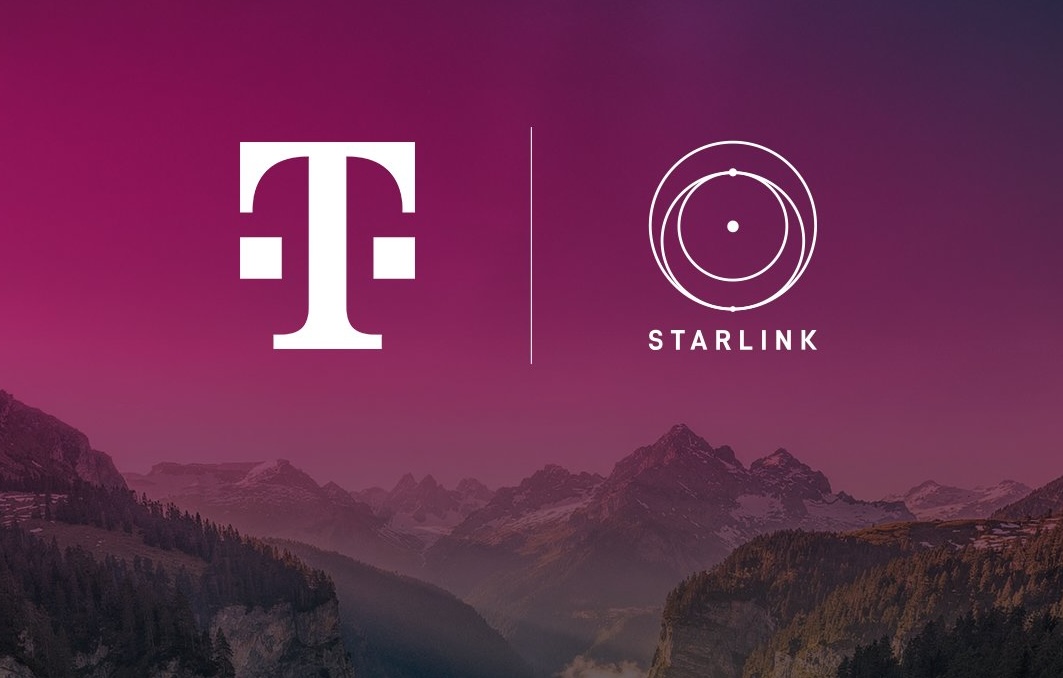
Starlink is partnering with Deutsche Telekom to roll out satellite-to-mobile connectivity across Europe, extending coverage to more than 140 million subscribers across 10 countries.
The service, planned for launch in 2028 in several Telekom markets, including Germany, will use Starlink’s next-generation V2 satellites and Mobile Satellite Service (MSS) spectrum to enable direct-to-device connectivity.
In a post on X, the official Starlink account stated that the agreement will be the first in Europe to deploy its V2 next-generation satellite-to-mobile technology using new MSS spectrum. The company added that the system is designed to deliver 5G speeds directly to compatible smartphones in remote areas.
Abdu Mudesir, Board Member for Product and Technology at Deutsche Telekom, shared his excitement for the partnership in a press release. “We provide our customers with the best mobile network. And we continue to invest heavily in expanding our infrastructure. At the same time, there are regions where expansion is especially complex due to topographical conditions or official constraints,” he said.
“We want to ensure reliable connectivity for our customers in those areas as well. That is why we are strategically complementing our network with satellite-to-mobile connectivity. For us, it is clear: connectivity creates security and trust. And we deliver. Everywhere.”
Under the partnership, compatible smartphones will automatically switch to Starlink’s satellite network when terrestrial coverage is unavailable, enabling access to data, voice, video, and messaging services.
Telekom reports 5G geographic coverage approaching 90% in Germany, with LTE exceeding 92% and voice coverage reaching up to 99%. Starlink’s satellite layer is intended to extend connectivity beyond those terrestrial limits, particularly in topographically challenging or infrastructure-constrained areas.
Stephanie Bednarek, VP of Starlink Sales, also shared her thoughts on the partnership. “We’re so pleased to bring reliable satellite-to-mobile connectivity to millions of people across 10 countries in partnership with Deutsche Telekom. This agreement will be the first-of-its-kind in Europe to launch Starlink’s V2 next-generation technology that will expand on data, voice and messaging by providing broadband directly to mobile phones,” she said.
Starlink’s V2 constellation is designed to expand bandwidth and capacity compared to its predecessor. If implemented as outlined, the 2028 launch would mark one of the first large-scale European deployments of integrated satellite-to-phone connectivity by a major telecom operator.
News
Tesla back on top as Norway’s EV market surges to 98% share in February
Tesla became Norway’s top-selling brand with 1,210 registrations, representing a 16.6% share.
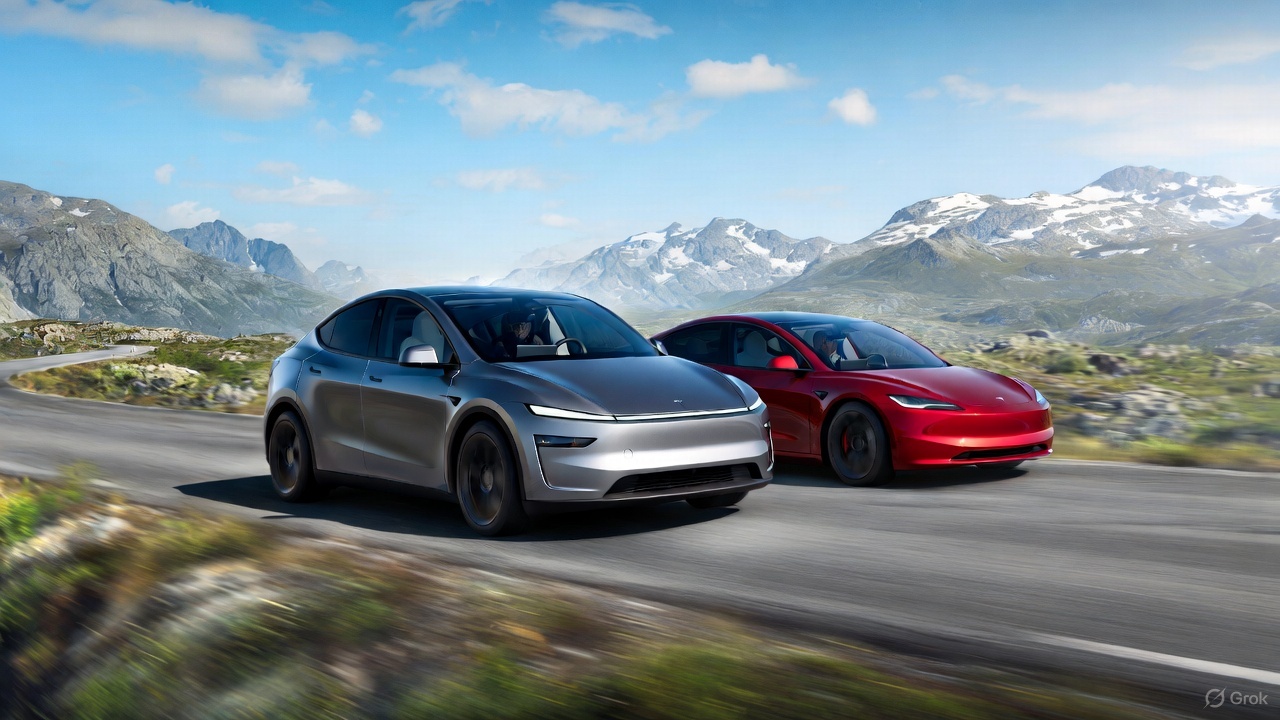
Tesla reclaimed the top spot in Norway’s auto market in February as electric vehicles captured more than 98% of all new car registrations.
The rebound follows a sharp January slump triggered by VAT rule changes, which prompted numerous car buyers to advance their purchases into late 2025.
As per data from the Norwegian Road Traffic Information Council (OFV), 7,127 new electric vehicles were registered in February, representing a 98.01% market share. Fossil-fuel vehicles and hybrids accounted for just 2% of total new registrations.
Total new car registrations reached 7,272 units in February, hinting at a rapid recovery after January sales fell nearly 75% year-over-year following VAT adjustments.
OFV Director Geir Inge Stokke noted that similar patterns were observed after previous VAT changes in 2022, with demand temporarily weakening before normalizing, as noted in an Allt Om Elbil report.
“We are now seeing signs that the market is returning to a more normal level of activity, which we also experienced after the VAT change in 2022. At that time, changes in demand led to a weak start to 2023. We have seen the same pattern this year,” he said.
Amidst this trend, the Tesla Model Y made a strong comeback in the domestic market. After an unusually weak January that saw the Tesla Model Y drop to seventh place, the model returned to the top of Norway’s sales chart in February.
The Model Y recorded 1,073 registrations, giving it a 14.8% market share for the month. Tesla also became Norway’s top-selling brand with 1,210 registrations, representing a 16.6% share. Toyota followed with 941 registrations, while Volkswagen, Volvo, and Skoda rounded out the top five brands.
The February data suggests that Tesla’s January dip was tied more to timing effects around VAT adjustments than to structural demand shifts. It would then be interesting to see how the rest of the year unfolds for Tesla, particularly as the company pushes for the release of its Full Self-Driving (Supervised) system to Europe this year.
